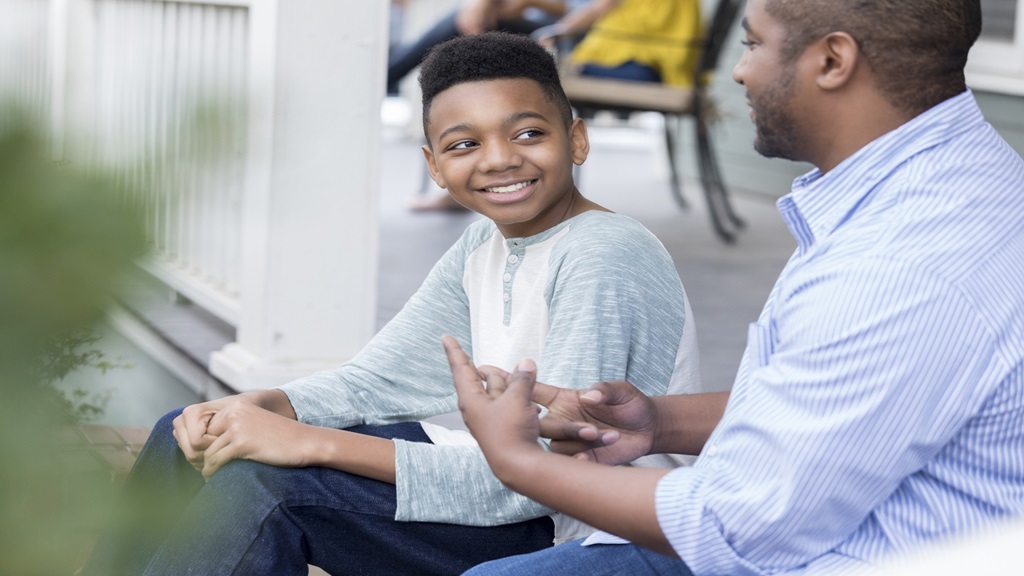Whether reuniting after school or catching up after a long day apart, ensuring your child knows you delight in their presence plays an important role in your connection with them. Not only do children who have strong bonds with their caregivers demonstrate fewer behavioral issues, but they generally possess a stronger sense of self confidence.
To help spark conversation, the team at Atrium Health Levine Children’s shares key questions and statements to ask your child at the end of the day to help create moments of nurture and connection:
“I have been thinking about you! Want to know what I was thinking about?”
This lets your child know you were thinking about them while you were apart, as well as creating an opportunity to tell them something you admire about them. Consider following it up with a statement that speaks to a non-superficial quality. For example, “I had a tough problem I needed to solve at work and I thought about how you’re good at solving problems.”
“Did anything funny happen at school today?”
Asking specific questions about their day makes it easier for them to share, especially if they are reliving a fun memory.
What was the best part of your day? What was the toughest part of your day?
Not only do these specific questions make it easier for them to share, but they also allow your child to reflect on an array of emotions. No matter if the day evoked emotions of sadness or anger, knowing they can express their emotions in a safe space helps strengthen emotional intelligence.
“Did anyone show you kindness today?” “Did you show anyone else kindness today?”
By asking about kindness, you show your child that kindness is a priority to you, which helps encourage them to make it a regular practice.
“Did you make any mistakes today? Great!”
Allowing your kids to reflect on their mistakes and failures shows that your love does not depend on their success. This helps protect them from perfectionism and encourages learning. Also try, “Did you try anything new today? I am so proud of you.” as a gentle reminder that success is not defined simply by completing a task, but rather putting forth their best effort.
“I’m happy to see you. Is it okay to ask about your day now, or do you need some quiet time first?”
Children experience a lot of stimulation throughout their day. It’s important to remind them that you delight in them, while also offering them space to decompress when they need it. An extension of control in the conversation also provides them a sense of comfort that generally leads to a desire for them to want to share. But if they do need quiet time first, let them decide how long they need; don’t continuously pressure them to speak. When a child feels respected, it will naturally strengthen their connection with you.
You know your child best
Ultimately, you know your child best. While fostering an open dialogue is important, so is acknowledging your child’s individual needs and desires.
If your child is more artistic and connects well to music, you might try “what do you want to jam to on the way home?” and listen to the music together without talking to allow them time to unwind.
If your child is naturally introverted, you should not feel the need to pull them out of their comfort zone. Perhaps have their favorite snack or drink ready and let them know you would love to hear about their day whenever they are ready to share – dinner is always a great time for a casual chat.
No matter how you choose to engage your child about their day, making sure they know you enjoy their presence is always a win.



